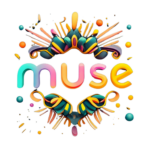In the fast-paced and ever-evolving world of marketing, staying ahead of the curve is essential for businesses looking to make a lasting impact. With the advent of innovative marketing technology, companies now have unprecedented tools and strategies at their disposal to connect with their target audience, drive engagement, and boost conversions.
One of the most significant advancements in marketing technology is the integration of artificial intelligence and machine learning. AI and ML algorithms analyze vast amounts of data, providing valuable insights into consumer behavior and preferences.
Marketers can leverage this information to create personalized and targeted campaigns, ensuring that their messages resonate with the right audience at the right time. These virtual assistants not only enhance customer satisfaction but also free up human resources for more strategic tasks.
Augmented Reality (AR) and Virtual Reality (VR)
AR and VR technologies have transcended gaming and entertainment, finding their way into the marketing realm. Businesses are using AR to create interactive and immersive experiences for consumers. For instance, furniture retailers can offer customers the ability to visualize how a piece will look in their homes before making a purchase.
VR, on the other hand, allows brands to transport users to virtual environments for unique and memorable brand experiences. Real estate companies, for example, can provide virtual property tours, giving potential buyers a sense of the space without physically being there.
Influencer Marketing Platforms:
Innovative Marketing Technology has evolved from sporadic collaborations to a sophisticated industry facilitated by dedicated platforms. These platforms connect brands with influencers whose audience aligns with the brand’s target demographic. With the help of analytics and tracking tools, marketers can measure the impact of influencer campaigns, optimizing their strategies for maximum effectiveness.
Blockchain Technology:
It’s making waves in marketing as well. Blockchain ensures transparency and security in transactions, which is particularly relevant in digital advertising. Ad fraud, a persistent issue in the industry, can be mitigated through blockchain, as it provides a decentralized and tamper-proof ledger for tracking ad impressions and verifying their authenticity.
Predictive Analytics:
Predictive analytics enables marketers to forecast future trends and behaviors based on historical data. By analyzing patterns and identifying correlations, businesses can make informed decisions about their marketing strategies. This technology empowers marketers to allocate resources more efficiently, optimize campaigns, and stay one step ahead of the competition.
Conclusion
From AI-driven personalization to immersive AR experiences, the possibilities are limitless. As technology continues to advance, marketers must stay agile and embrace these tools to create compelling campaigns. By leveraging the power of innovative marketing technology, businesses can not only survive but thrive in the dynamic and competitive landscape of the digital age.

